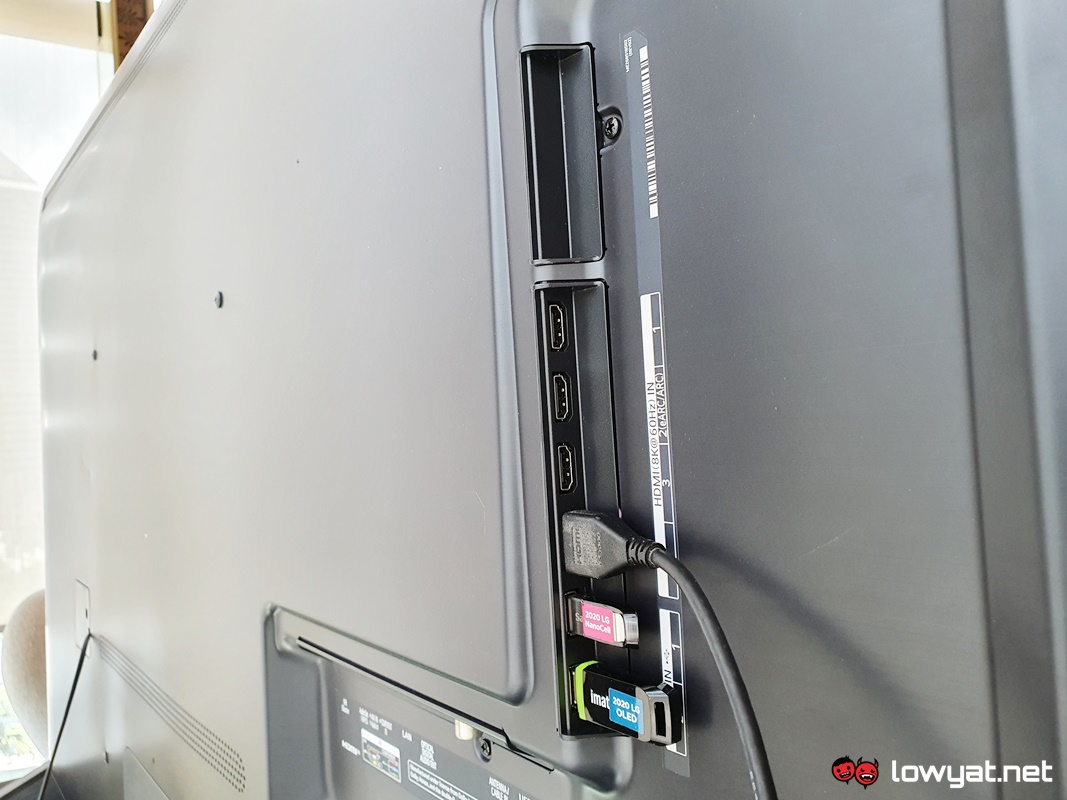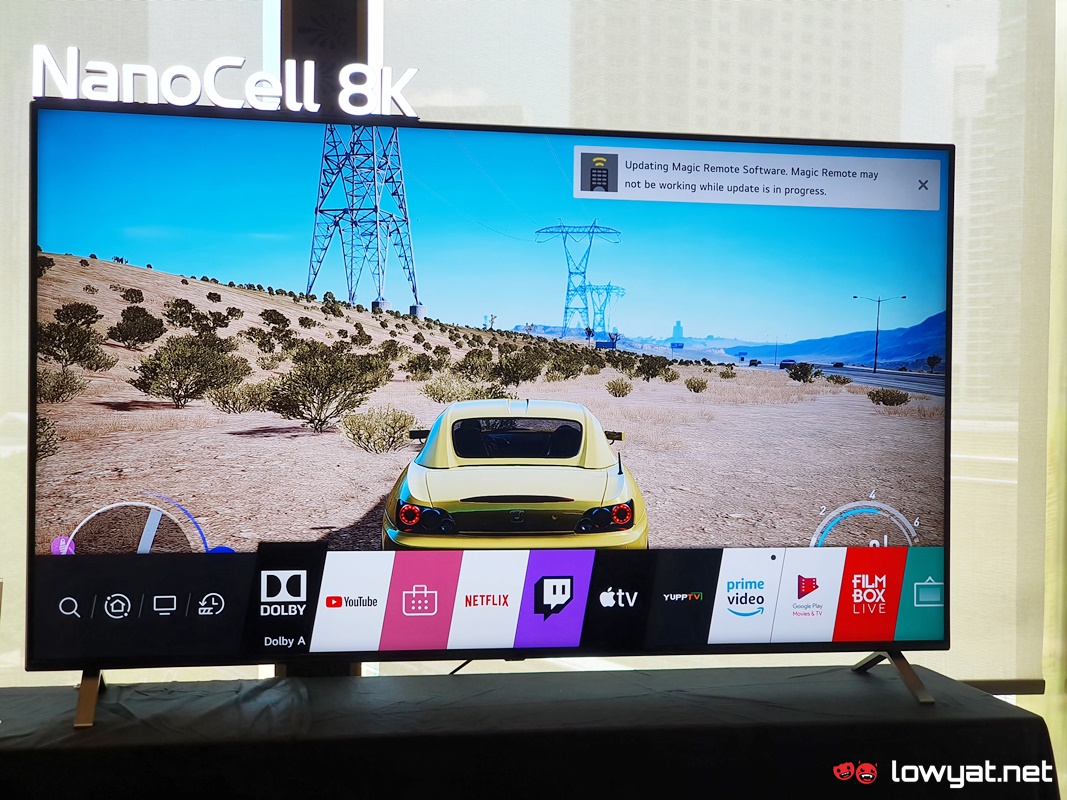Specs-wise, the NanoCell 8K is fitted with an α9 Gen3 AI processor, which is the TV’s proverbial beast of burden. As its name suggests, the processor was made specifically to help the TV with sharpening images and words, as well as upscaling content up to 8K wherever possible. While also retaining a tremendous amount of detail. On colour accuracy, the IPS display of the NanoCell 8K obviously utilises LG’s nano-engineering technology, but LG assures us that there it has made some improvements over the years since the technology’s existence. In short, you still get the same 33 million pixels, deeper blacks, and punchier greens and reds.
As for the software side of things and returning briefly to the NanoCell 8K TV’s AI processor, you get the usual accoutrement of features expected of an LG TV. This includes an improved version of Face Enhancing, AI Brightness Control, AI Sound Pro, and Adaptive Sound Control. The last two features designed for the sole purpose of enhancing and cleaning up the sound from the video source. There’s also LG’s ThinQ AI that serves as the TV’s primary OS, but to be quite frank, we’re still puzzled as to why LG won’t come up with a TV model running on Android OS. We’ve pressed LG about the matter several times at this point, but the answer has more or less been along the lines of “we’re still considering it”.
As mentioned, the NanoCell 8K is capable of upscaling, and to that end, it’s a feature that we’re certain consumers who own the TV are going to be using on their 4K content. The reason for that is simply because, as it stands, there’s still not whole lot of content recorded in native 8K resolution. The LG NanoCell 8K is already available at all authorised resellers and retails at an SRP of RM21999. That said, the brand will be having a special sale on Merdeka day, where consumers can purchase the TV for RM14999. Additionally, the TV is currently only available in one size and that’s 65-inches. However, the brand told us that it was planning on bringing 75-inch variant of the TV into the country, but fell short of providing a specific launch date.

